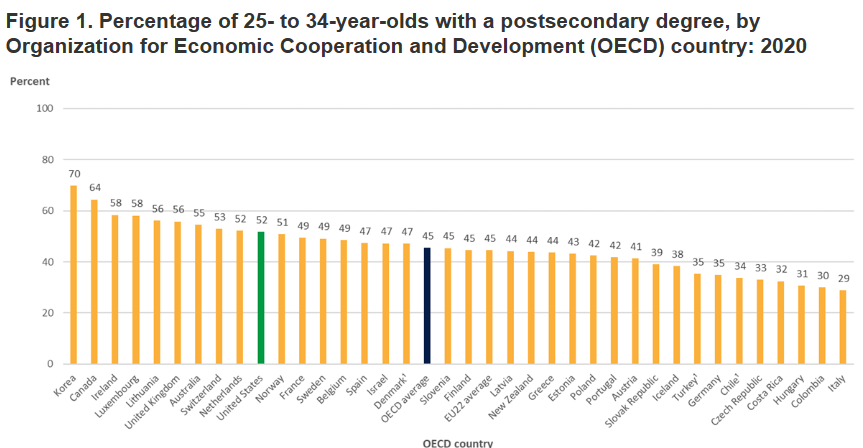I hate it when I get cancelled by the woke left for culturally appropriating slightly too spicy food. Doesn't matter how much water I drink I stay cancelled.
>"Gonna show up on your lawn burning a giant effigy of belle delphine, boy."
Don't threaten me with a good time.
Don't threaten me with a good time.
A buddy of mine was telling me about it. It wasn't approved for use in Canada until 2022, but it was the most conventional of the choices out there.
If mandates do come back, I'll end up getting that one.
If mandates do come back, I'll end up getting that one.
Hmmmm... 🤔
(I know, "Why the hell are you looking at that in 2023?" -- well, someone challenged me on some stuff so I dug up some official facts and figures to support my viewpoint.)
(I know, "Why the hell are you looking at that in 2023?" -- well, someone challenged me on some stuff so I dug up some official facts and figures to support my viewpoint.)

The one thing I found really confusing about this is that it implies that 50% of families in South Korea are on the road to becoming millionaires. It seems like it's more saying "among the familes that are doing well, this is the 50% level" instead of "50% of all families are doing this well"
Sort of makes you think. According to OECD data shown below, Canada and South Korea have the highest levels of postsecondary education among OECD nations. What's interesting is that both countries have problems that aren't recorded by numbers. South Korea is often called "hell Joseon" by its inhabitants because of its hypercompetitive business landscape, and Canada has big problems of high cost of living, insurmountable housing costs, and overall a really challenging environment to excel in. That suggests that these two countries have the highest levels of postsecondary education not for positive reasons necessarily, but because people feel if they don't do these things they won't be able to survive.

It seems to me like you can't really use "antisemitism" to talk about either side of Israel vs. Palestine, since both Jews and Arabs are Semitic people, but the word has never included all Semites.
On the other hand, often when referring to discrimination against Arabs, they'll call it "islamophobia", even though not all Arabs are Islamic.
And today I was talking about nihilism, and how it refers to something quite different than its etymological root seems like it should mean, "believing nothing", but instead it means "not believing in traditional meaning or values"
Is philosophy and sociology just the art of using clearly wrong words to describe things?
On the other hand, often when referring to discrimination against Arabs, they'll call it "islamophobia", even though not all Arabs are Islamic.
And today I was talking about nihilism, and how it refers to something quite different than its etymological root seems like it should mean, "believing nothing", but instead it means "not believing in traditional meaning or values"
Is philosophy and sociology just the art of using clearly wrong words to describe things?
I feel like there's some selection bias here. Old people who can engage in aerobic exercise and strength training will often be people who are better off than those whom can't.
Thankfully I think we're seeing a major turning around the world.
The big question is going to be how many of these places that are having a turning actually have conservative parties, because a lot of the so-called conservative parties are just pinko-lite.
The big question is going to be how many of these places that are having a turning actually have conservative parties, because a lot of the so-called conservative parties are just pinko-lite.
America's biggest advantage in the world wars was that there actually was no "must" because there was a huge ocean between it and anyone who really threatened them. It could conceivably sit out of Eurasian wars altogether and probably get away with it. If they "needed" to go to war, it'd likely be to just take the rest of the Americas that don't have any chance if they decided to go all-out.
I feel like all these are sorta off.
We are born both virtuous and corrupted, with a capacity for both, but also a hole that can be filled with either based on culture, environment, and personal choice.
Morality is derived from our humanity. If we were another thing, we would have a different morality.
In some ways, morality is built in because at times acting morally ended up being the only thing that saved the human race. As our brains got bigger, men for example went from having a mostly promiscuous strategy for having children to having a strategy where men take an active role in childrearing. Part of that change would be cultural, but part of it would be genetic where men who are predisposed to active childrearing would survive better. (Apparently that happened about 250k years ago).
In other ways, immorality is built in because at times acting immorally (or acting with a different morality) is the only thing that saved people. There are genes for heroism and risk taking and some areas of the world have these genes a lot and other areas of the world don't have them at all, depending on the history of the regions people. Some men still use the 750k year old promiscuous path for having lots of kids because sometimes that still works (and our kids have different behavioral expressions depending on which path their father takes, being more prosocial and less violent if the father sticks around).
In my last paragraph I touched on this, that genetics have an impact, but so do epigenetics or entirely non-genetic factors. Epigenetics suggests that our behavior and other bodily regulation depends a lot on our immediate environment. A stressed out mother who never meets her children may nonetheless pass on characteristic behaviors induced by that stress onto children. Non genetic factors.ay be cultural. Someone who grows up in a society like ancient Sparta is going to think the highly aggressive, slave based, martial life is normal and good, but most modern people would be aghast at that.
Finally, even after everything else is accounted for, there's personal choice. I'm one of six kids. We grew up in the same house, were raised the same, but went on to live quite different lives. Some of that is the butterfly effect of different minor experiences, but a lot of it is we chose how we were going to live and chose differently, and that led to different outcomes.
So while it might seem I'm saying we are born neutral, in fact I'm saying we're born both good and evil, and it's quite a complicated thing.
We are born both virtuous and corrupted, with a capacity for both, but also a hole that can be filled with either based on culture, environment, and personal choice.
Morality is derived from our humanity. If we were another thing, we would have a different morality.
In some ways, morality is built in because at times acting morally ended up being the only thing that saved the human race. As our brains got bigger, men for example went from having a mostly promiscuous strategy for having children to having a strategy where men take an active role in childrearing. Part of that change would be cultural, but part of it would be genetic where men who are predisposed to active childrearing would survive better. (Apparently that happened about 250k years ago).
In other ways, immorality is built in because at times acting immorally (or acting with a different morality) is the only thing that saved people. There are genes for heroism and risk taking and some areas of the world have these genes a lot and other areas of the world don't have them at all, depending on the history of the regions people. Some men still use the 750k year old promiscuous path for having lots of kids because sometimes that still works (and our kids have different behavioral expressions depending on which path their father takes, being more prosocial and less violent if the father sticks around).
In my last paragraph I touched on this, that genetics have an impact, but so do epigenetics or entirely non-genetic factors. Epigenetics suggests that our behavior and other bodily regulation depends a lot on our immediate environment. A stressed out mother who never meets her children may nonetheless pass on characteristic behaviors induced by that stress onto children. Non genetic factors.ay be cultural. Someone who grows up in a society like ancient Sparta is going to think the highly aggressive, slave based, martial life is normal and good, but most modern people would be aghast at that.
Finally, even after everything else is accounted for, there's personal choice. I'm one of six kids. We grew up in the same house, were raised the same, but went on to live quite different lives. Some of that is the butterfly effect of different minor experiences, but a lot of it is we chose how we were going to live and chose differently, and that led to different outcomes.
So while it might seem I'm saying we are born neutral, in fact I'm saying we're born both good and evil, and it's quite a complicated thing.